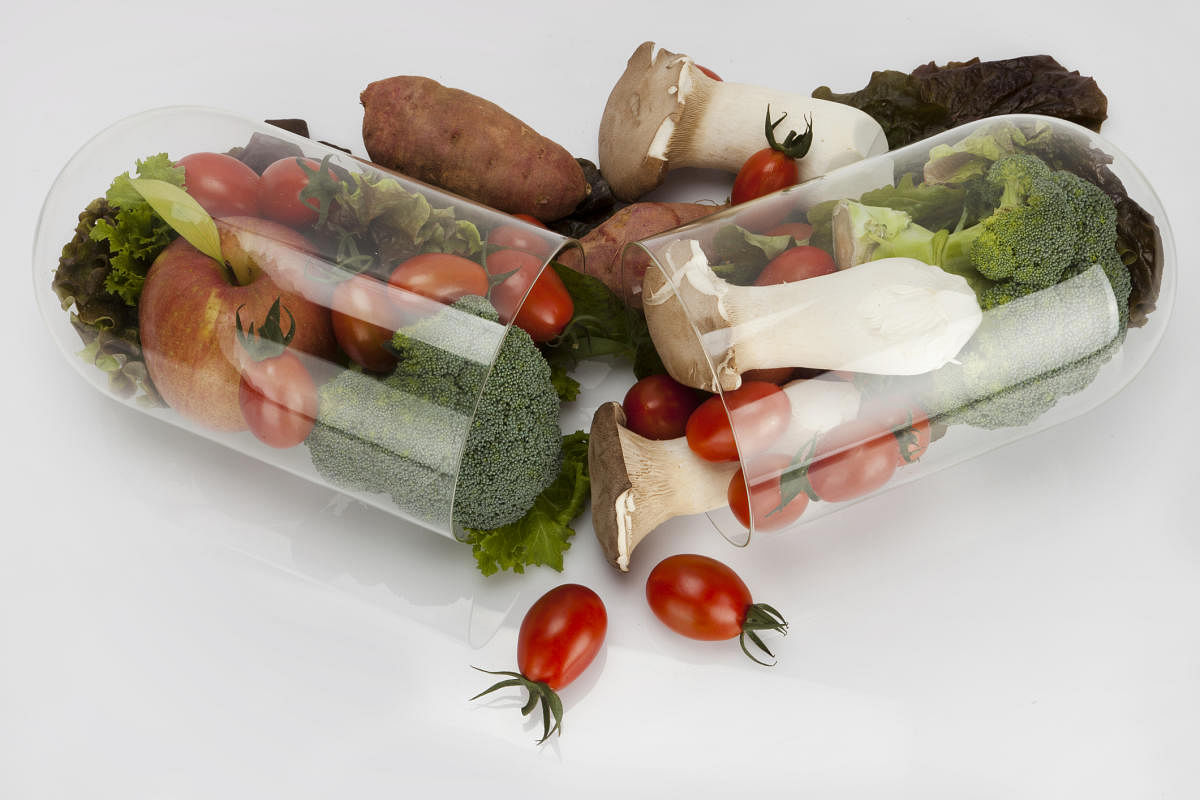
Our body needs nutrients to function ably. It needs a combination of macronutrients which include proteins, carbohydrates, fats, along with micronutrients like vitamins and minerals. Our body gets the required energy and nourishment when the food we eat is broken down during the digestive process. It is during this process that macronutrients like protein are broken down into amino acids, and carbohydrates are further broken down to glucose for energy.
We need nutrients from foods to function well. And to better absorb nutrients, we need a healthy gut. A healthy gut environment includes adequate acids in the stomach for the digestive process that extracts vitamin B12 from animal food. The extracted vitamin is protected by a nutrient secreted by the gut barrier before being transported to the small intestine for absorption. Here’s how you can better your gut to increase intestinal absorption:
Pack in variety
One must eat a variety of foods to ensure broad variants of nutrients. Indulge in a rainbow diet once in a while or include a lot of colourful foods in your meals. You can pair up synergistic foods — foods that when paired up, improve nutrient absorption. Pair up plant-based iron sources with foods rich in Vitamin C to increase iron absorption. Table wine paired with an animal protein leads to better zinc absorption. One needs Vitamin D for better calcium absorption. Include healthy fats in your diet for better absorption of fat-soluble vitamins like A, D, E and K.
Nourish with probiotics
Your gut is home to many bacteria that work for you to support many functions of your body, including but not limited to digestion. Nourish your gut with probiotic foods containing good bacteria that produce enzymes for better digestion. The good bacteria helps breakdown food to maximise intestinal absorption. Fermented foods like yogurt, pickles, kimchi can help populate your gut with good bacteria to optimise the absorption of nutrients.
Feed the good bacteria
The gut bacteria are good guys that perform the job enhancing the bioavailability and absorption of nutrients from food while keeping the toxic waste and bad bacteria out of your system. You can support the gut bacteria and the inner ecosystem by consuming glutamine-rich and prebiotic foods. Prebiotics are non-digestible food components that promote the growth of microbes in the digestive tract and are known to better absorb iron, calcium, magnesium and promote your immune system. Foods like garlic, onions, bananas, apples, and whole oats are some examples of prebiotics. Apple Cider Vinegar is another example of prebiotic function food that is in vogue. All the prebiotics are rich in fibre and feed the probiotics to maintain a healthy gut and inner ecosystem.
Balanced lifestyle & medication
We live in times where stress is synonymous with life. Stress is known to hamper the digestive process and can have a detrimental effect on nutrient absorption. Stress releases cortisol which slows down digestion. Being calm helps with the release of important digestive enzymes, muscle relaxation, and healthy gut bacteria; all of which promote more nutrient absorption. Make sure to avoid tea or coffee close to meal timings as they can interfere with the absorption of nutrients like iron and hormones like levothyroxine.
(The author is adviser, integrative lifestyle & nutrition, Purenutrition.me)